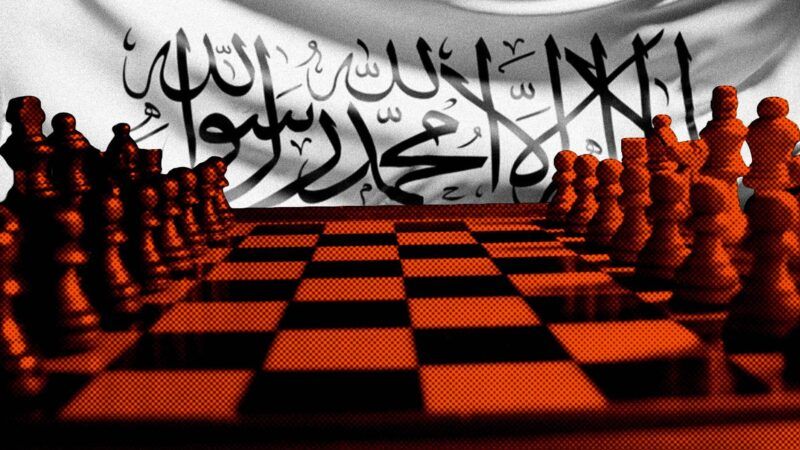The Taliban Banned Chess
Since retaking power, the Taliban has banned certain music, barred women from parks, and now outlawed chess. Authoritarians don’t just crush dissent—they criminalize joy.

Since the Taliban's takeover of Afghanistan in 2021, the extremist Islamic group has unleashed sweeping draconian policies to transform the nation into a more traditional society that espouses the moral and religious values of Sharia law. The banning of girls from secondary education, forcing women out of work, and extreme media censorship have made headlines, but an equally insidious campaign has largely been missed. The Taliban has focused on dismantling leisure and joy, with its latest target one of humanity's oldest pastimes: chess.
On May 11, Afghanistan's Ministry of Sports issued a declaration stating the game's indefinite suspension, elaborating that "religious concerns" needed to be properly addressed. This declaration came after Atal Mashwani, spokesperson for the country's sports directorate, stated last year that the game was considered gambling under Sharia law. Until these religious objections are resolved, chess will remain in limbo.
The Ministry for the Propagation of Virtue and Prevention of Vice effectively dissolved the Afghanistan National Chess Federation (ANCF), an organization that governs chess competitions in the nation and represents Afghanistan in the World Chess Federation. Speaking with Chess.com, president of the ANCF Ghulam Ali Malak Zad said the suspension halted all of the federation's official operations, even restricting casual, non-competitive play in public spaces.
This is part of a broader pattern. Since 2021, the Taliban have been targeting different forms of recreation, under the guise of improving morality. In 2022, the government barred women from entering public spaces such as gyms and parks, decreeing that "people were ignoring gender segregation orders and that women were not wearing the required hijab."
In 2023, the government burned musical instruments, claiming music "causes moral corruption." The founder of the Afghanistan National Institute of Music, Ahmad Sarmast, called it an act of "cultural genocide." Many musicians have fled the nation since 2021.
The Taliban are not only regulating morality—they are fundamentally eliminating voluntary activity. The bans reflect a political effect more than a religious one. Building a community and asserting some level of individuality outside the state's control is a grave threat to regimes that thrive on obedience and passivity. Furthermore, a game that promotes strategic reasoning, voluntary and friendly competitions, and independent thought is truly dangerous to a regime that demands conformity.
Authoritarian regimes don't just rewrite their constitutions or crush any form of political dissent; they slowly chip away at small freedoms that make life more enjoyable. When any government decides how people relax, think, or enjoy themselves, it isn't just about policing morality—it's about asserting political control.


Show Comments (48)